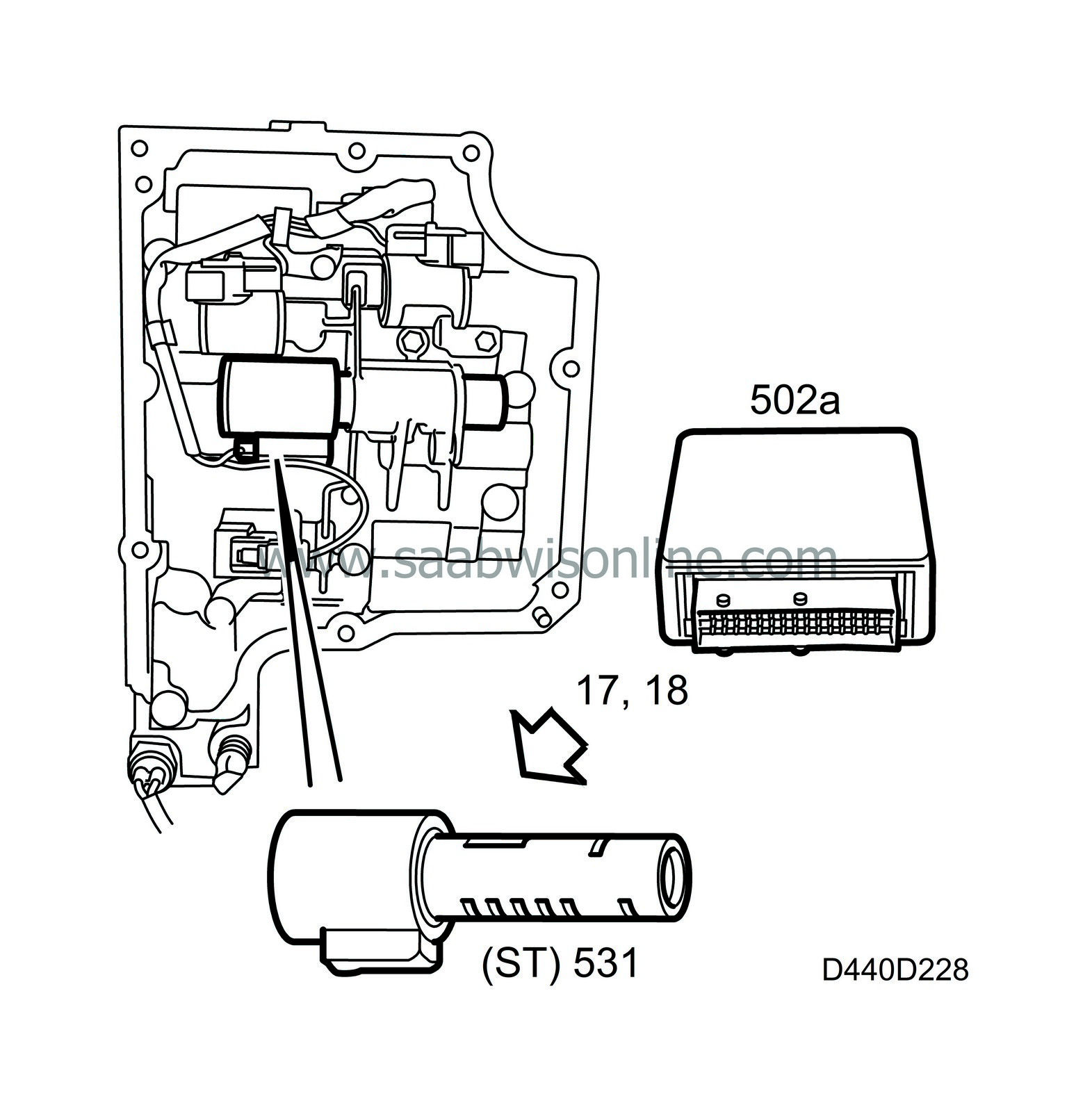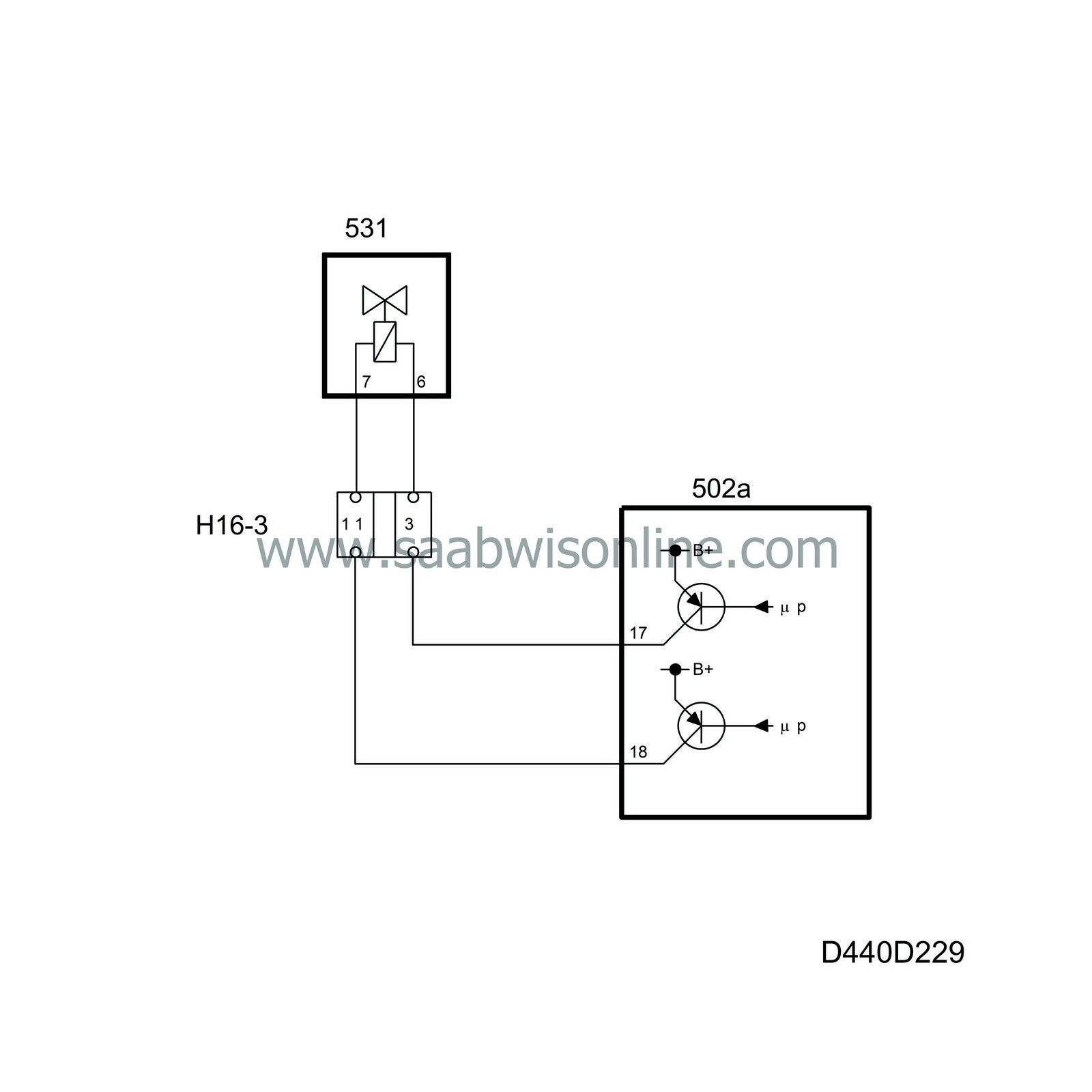Solenoid valve ST, for system pressure
| Solenoid valve ST, for system pressure |
Solenoid valve ST is located in the valve housing which is mounted on the transmission casing. The solenoid regulates the automatic transmission's system pressure.
The solenoid is not grounded to the gearbox but internally in the control module. It is supplied via control module pin 17 with feed back to control module pin 18. The solenoid is controlled by a varying current from the control module, where the current is affected primarily by the throttle position. A high current, approx. 1 A, causes low fluid pressure and when the current is low or if it is cut, the system pressure will be at maximum.
When shifting N-R, the control module will reduce the system pressure to reduce the risk of jerky shifting. When the fluid temperature is higher than 10°C and the vehicle speed is above 5 km/h, the control module will increase the system pressure to shorten the shifting times.


The function is blocked in the following situations:
| • |
The fluid temperature exceeds 20°C.
|
|
| • |
The vehicle speed exceeds 7 km/h.
|
|
| • |
The position of the selector lever changes.
|
|
The coil resistance in the solenoid is approx. 4 ohms.
The current strength at idling speed with the handbrake applied and the selector lever in position D is approx. 900 mA and the fluid pressure 3.4-4.6 bar.
Electrical faults (short-circuit to ground or B+ and open circuits) in the solenoid valve or wiring harness will put the transmission in limp-home mode.


